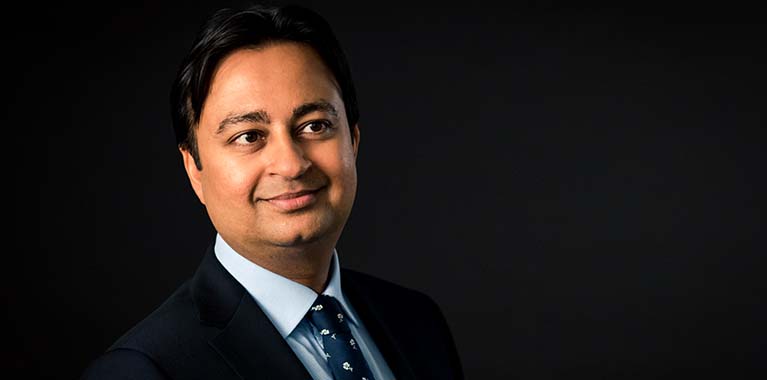
Select highlights from the East Africa International Arbitration Conference 2020

On 26-28 August 2020, the eighth edition of the East Africa International Arbitration Conference, took place on a virtual platform instead of Zanzibar.
Introduction
On 26-28 August 2020, the eighth edition of the East Africa International Arbitration Conference, took place on a virtual platform instead of Zanzibar. The event was a resounding success with participants from all over the world interacting with prolific speakers from a variety of industries with a specialisation in Africa. Kamal Shah, head of Stephenson Harwood’s Africa and India groups, moderated the Conference’s final session ‘Avoiding pitfalls in international arbitration’, where the panel discussed the pitfalls in international arbitration with particular regard to costs and damages, contractual issues in light of the Covid-19 pandemic and cross-examination of experts and witnesses, followed by a lively Q&A session.
Mr Shah was also invited to speak on the development of the African Continental Free Trade Area (AfCFTA) and the increase of pan-Africa trade will impact investment treaty arbitration on Arise News. A summary of the interview may be found in the second part of this article; to watch the interview, please click here.
To view the PDF of this article, please click here.
Avoiding pitfalls in international arbitration
Mr Shah moderated one of the most interesting panels for practitioners on practical tips to succeed in international arbitration. The panel focussed on three main topics, as summarised below, while the ensuing Q&A session saw a discussion of broader contemporary issues in the practice.
Costs and damages assessment
Tafadzwa Pasipanodya (Foley Hoag, USA) commenced with an overview of costs and damages assessment. She spoke about the importance of preparation when it comes to costs and damages and that counsel must think of this from the outset. While there have been some reform initiatives, for example, consideration of the fair and equitable treatment standard of investor protection in the African Continental Free Trade Agreement, there is an overall lack of attention to reform with respect to the issue of damages. When asked about the cost savings associated with virtual hearings, Ms Pasipanodya considered it likely that clients will ask for more to be done virtually, especially due to the financial savings from reduced travel, but it is unlikely that fees for legal services will decrease as practitioners will still be undertaking the same amount of work as before. She also thought that experts, especially in construction matters, will probably continue to travel on site in order to properly carry out their functions.
Contractual issues following Covid-19
Luisa Cetina (Anjarwalla & Khanna, Kenya) addressed the fallout from the Covid-19 pandemic in relation to contractual issues, and in particular the increase in reliance on force majeure and frustration as grounds for contractual non-performance. She expressed concern that the augmented demand for arbitration may place a strain on the practice and it is vital that practitioners, arbitrators and centres adapt – as some are already doing with solutions such as e-bundles and remote hearings. However, more has to be done, as clients themselves face increasing pressure to resolve disputes expeditiously; although arbitration has traditionally been preferable to litigation for its efficiency, many are finding even arbitration too protracted to meet business needs. This is also reflected in the growing financial pressures on many clients who are, for example, looking to third party funders to assist in financing the dispute resolution process. Looking forward, Ms Cetina covered the pros and cons of work being undertaken virtually, both in relation to teamwork within a firm as well as the effect on client relationships.
Cross-examining experts and witnesses
Jane Davies Evans (3 Verulam Buildings, UK) focussed on techniques for successful cross-examination. She emphasised the need to keep the primary purpose of the cross-examination at the forefront of the cross-examiner’s mind. While some may feel tempted to “twist the knife” in every time they ask a question to the witness, it is important to understand that for every question asked, the opposing party simultaneously has the opportunity to improve its case either by its witness giving a good answer, its counsel leveraging on the question for a good re-direct exchange and/or by engaging the tribunal’s curiosity in a manner detrimental to one’s case. Ms Davies Evans also cautioned against the dangers of over cross-examining and the virtue of stopping when one’s objectives have been achieved instead of going for “the kill”. She considered another pitfall to be when one fails to grapple with the difficult issues, e.g., on quantum, choosing instead to attack an expert’s credibility on easy topics, because a tribunal may see that as wasting time.
Mr Shah asked Ms Davies Evans to share her experiences of virtual hearings and how that has affected the cross-examination element of a hearing. Ms Davies Evans discussed concerns such as witnesses receiving assistance from somebody off camera, although she considered that in reality this is not a major setback since the tribunal can see the witness’s reaction in even closer proximity than in a physical hearing room.
Other contemporary issues in the practice of international arbitration
Mr Shah also discussed a number of key contemporary issues with the panellists, with the active participation of delegates who posed questions via the virtual chat throughout the session.
Fraud and corruption: Mr Shah asked the panel about lessons learnt regarding fraud and corruption, for example in the high profile case of Process and Industrial Developments Limited v Nigeria, and what African states could do in order to avoid these pitfalls. Ms Pasipanodya expressed views in relation to damages, commenting that respondent states need to pay more attention to the causation aspect of the argument from the outset, because it is often too late if states wait till the quantum phase of proceedings to raise questions of whether losses suffered by a claimant have been caused by the state. From a practical perspective, Mr Shah stressed the importance of having a clear line of communication within state departments, especially since disputes often arise in relation to contracts signed a long time ago.
Duration of the international arbitration process: Mr Shah went on to query if the arbitration process is, on average, too lengthy. In line with her former remarks, Ms Cetina observed that clients increasingly find that it takes too long to resolve disputes by arbitration and are consequently looking to other forms of alternative dispute resolution, such as expert determination.
Appointment of arbitrators: Mr Shah then introduced the topic of arbitrator appointments, including the increasing consciousness of the community of the need for diversity, as well as the potential use of artificial intelligence, noting the successful initiatives such as the Equal Representation Pledge and the African Promise. He engaged the panel in discussing their experience with tackling issues of diversity. Ms Cetina expressed a preference for African arbitrators in many of her cases due to the importance of context, which is incredibly relevant to commercial disputes. Importantly, she highlighted that integrity remains the most critical factor in arbitrator selection. In relation to AI, Ms Cetina acknowledged its potential, but noted that it would depend on further developments in technology given concerns of unconscious bias by developers. Ms Pasipanodya stressed the importance of doing sufficient research in selecting an arbitrator as she considers the appointment to be of critical importance in the arbitral process. She further suggests that more needs to be done to promote the track record of young and diverse arbitrators so that counsel may be reassured in the course of their research that they are selecting the appropriate candidate in the best interest of their clients. Ms Davies Evans weighed in, noting that for states, who are often respondents in proceedings, the claimant will have chosen a well-known arbitrator and the state may have concerns about selecting one that is less well-known. She therefore advocates for more efforts to be done to promote African arbitrators so they can stand their ground on the global stage. The panellists also discussed double-hatting, a topical issue particularly regarding investment arbitration, and Ms Davies Evans shared that she would always err on the side of over-disclosure because one needs to remember that they are providing service to clients as arbitrator.
Interview with Kamal Shah on Arise News
Following the Conference, Kamal Shah was interviewed by news anchor Boason Omofaye on Arise News in relation to how the development of the African Continental Free Trade Area (AfCFTA) and the increase of pan-Africa trade will impact investment treaty arbitration.
Shah discussed how investment treaty arbitration is growing, particularly in emerging markets. He specified that the focus should be resolving disputes when they arrive as efficiently and fairly as possible and that it was key to equip the judiciary and the lawyers in government in order to deal with such disputes. He also noted that there needs to be an improvement in the procurement strategy for governments appointing foreign counsel.
Shah continued to discuss how effective dispute resolution, such as international arbitration, is of paramount importance for pan-African trade in a world where there are trade wars, sanctions and increasing uncertainty. Whilst implementation of the AfCFTA has been delayed due to the Covid-19 pandemic, appropriate dispute resolution mechanisms are imperative. Acknowledging that it is still early days, Shah stated that the spirit of the agreement is very much there. He emphasised that is important for countries to focus on having the instruments in place to deal with disputes efficiently and fairly.
Shah went on to discuss that many countries across Africa have set up arbitral centres with future investment opportunities in mind but in order for investment to be realised, there needs to be further effort to build up the judiciary and the local bar. Shah stressed that arbitral centres would fail if there is a lack of investment but given the right resources, the ranking of countries in terms of ease of doing business would subsequently increase, thus meaning that investment would increase.
When asked by Omofaye in relation to the size Africa’s trade, given that most of Africa trades with the western world and with Asia, and how the AfCFTA could change the future of dispute resolution across the continent, Shah noted the huge scope for pan-African trade, that the agreement is long overdue and barriers need to be lifted. He spoke about how there is already a number of trading blocs within Africa, operating with varying levels of success, but that encouraging cross-border trade will inevitably lead to more disputes. He discussed how there needs to be mechanisms in place to deal with this, particularly from a costs perspective as resources are finite.
Shah went onto consider the case of Process and Industrial Development case v Nigeria and that it is crucial for lawyers in government to be equipped with the appropriate skill set. He noted that it there needs to be a partnership between government and the private sector when it comes to ameliorating the local bar in order for governments in Africa to put their best foot forward.
To view the video in full, please click here.



